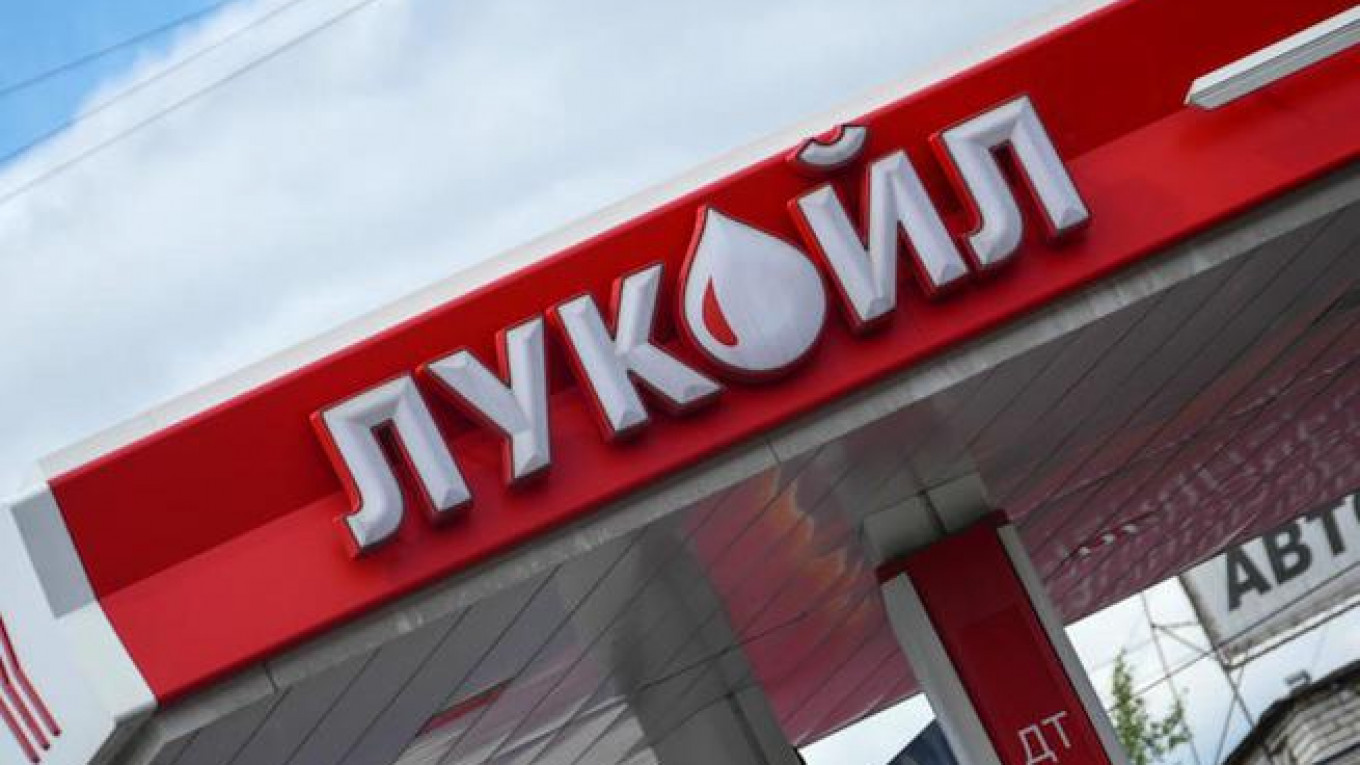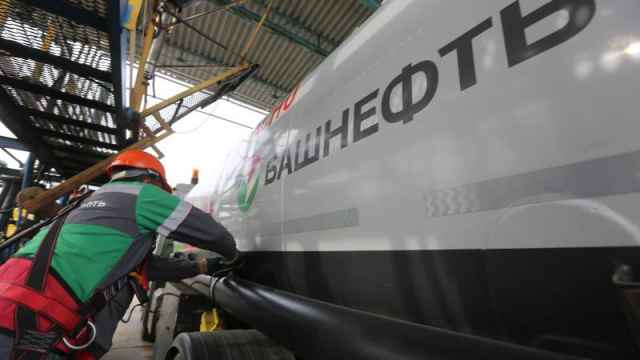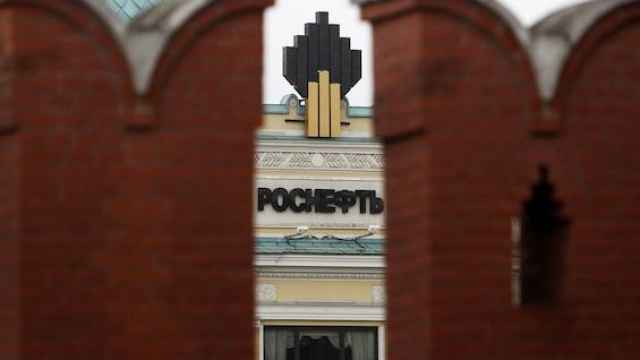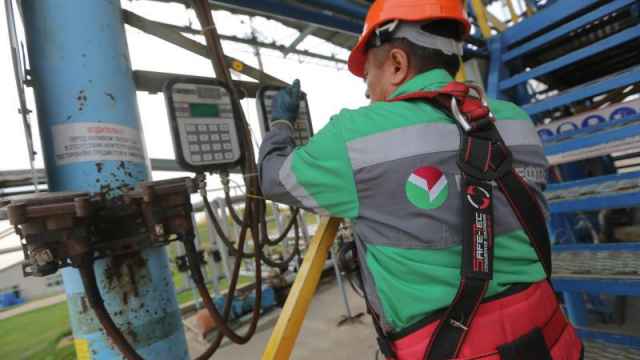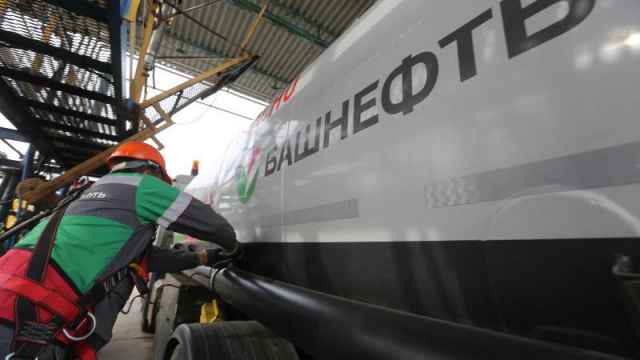It was only a brief car journey, but it may help determine the future of Russia’s flagship oil company, Rosneft.
On Oct. 31, at the opening ceremony for the Filanovsky oil field in the Astrakhan region, President Vladimir Putin invited Vagit Alekperov, director of the Lukoil oil company, to take a ride with him. According to the Vedomosti newspaper, in the ensuing 20 minutes Putin made Alekperov an offer that he will find difficult to refuse: to take part in the privatization of Rosneft.
Previously, Alekperov had denied that he was interested in helping privatize the state-controlled behemoth. Earlier this summer, rumors were focused on another buyer — the Chinese National Petroleum Corporation — but they reportedly wanted more operational control over the company. Then, when Rosneft purchased a majority share in the state-owned Bashneft oil company last month, there were even discussions that the oil giant might “self-privatize” by purchasing a 19.5 percent share in itself from its majority shareholder, state energy company Rosneftegaz. Rosneft would then be free to sell these shares to strategic investors, so that logic went.
But the news of Lukoil’s potential involvement in the privatization suggests that plans may have changed. A source close to the Russian government told The Moscow Times that the problem was quite simple: the government just can’t find a buyer for Rosneft.
Now the government is trying to save face, suggests Vladimir Milov, president of the Institute of Energy Policy: “When they didn’t find any foreign buyers for Rosneft, it was a big blow to the image that the government is promoting.”
And it wasn’t the first blow, either. When Rosneft purchased a 50.8 percent share in Bashneft last month, many argued that the authorities were simply shifting the shares from one pocket to another. Rosneft’s planned “self-privatization” was bound to provoke more criticism, an outcome undesirable to the Russian leadership. This pushed Putin to personally intervene to find a private buyer, Milov believes.
For more on Bashneft's privatization, click here.
It is not difficult to understand why potential investors may be hesitant. Rosneft is the world’s largest publicly traded oil company. A 19.5 percent share is no small investment and confers little control over the company. BP owns a slightly larger stake and still cannot influence the Rosneft’s management. Lukoil, by comparison, would only purchase a smaller share, perhaps 10 percent, several analysts told The Moscow Times. The rest might go to China’s Sinotec, Kazakhstan’s Kazmunaigaz, or Russia’s Surgutneftegaz, according to reports.
As a result, if Lukoil privatizes Rosneft, it wouldn’t be for commercial purposes.
“I don’t think Lukoil is particularly interested in Rosneft,” says Andrei Polischuk, an analyst with Raiffeisenbank. “For the government, Lukoil was simply a large private oil company loyal to the state that could hang onto the shares for while.” He believes the government’s true plans remain the same: eventually selling the 19.5 percent share to strategic investors abroad — most likely in China or India.
But the immediate steps remain unclear. Lukoil may indeed help privatize Rosneft — likely in return for some kind of concession from the government, Milov says. But “self-privatization” is still on the table, too.
Regardless of the outcome, Sergei Romanchuk, head of money markets at Metallinvestbank, believes a serious question remains: how the privatization will be perceived and what effect it will have on the business climate.
“If it were a market sale involving foreign investors, that would naturally be good,” he says. “But is Rosneft buying itself better than a sale to Lukoil under government pressure? I’m not sure.”
The Moscow Times’ source believes the government may also be unsure.
“They’re preparing the documents for an auction,” he says, “but there are still no concrete directives.”
A Message from The Moscow Times:
Dear readers,
We are facing unprecedented challenges. Russia's Prosecutor General's Office has designated The Moscow Times as an "undesirable" organization, criminalizing our work and putting our staff at risk of prosecution. This follows our earlier unjust labeling as a "foreign agent."
These actions are direct attempts to silence independent journalism in Russia. The authorities claim our work "discredits the decisions of the Russian leadership." We see things differently: we strive to provide accurate, unbiased reporting on Russia.
We, the journalists of The Moscow Times, refuse to be silenced. But to continue our work, we need your help.
Your support, no matter how small, makes a world of difference. If you can, please support us monthly starting from just $2. It's quick to set up, and every contribution makes a significant impact.
By supporting The Moscow Times, you're defending open, independent journalism in the face of repression. Thank you for standing with us.
Remind me later.


